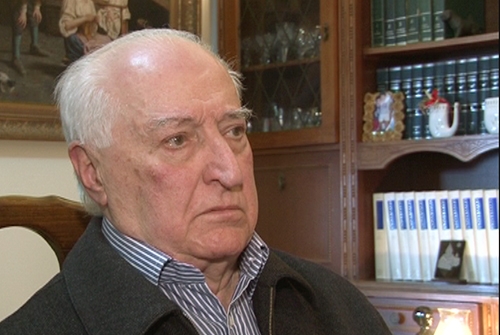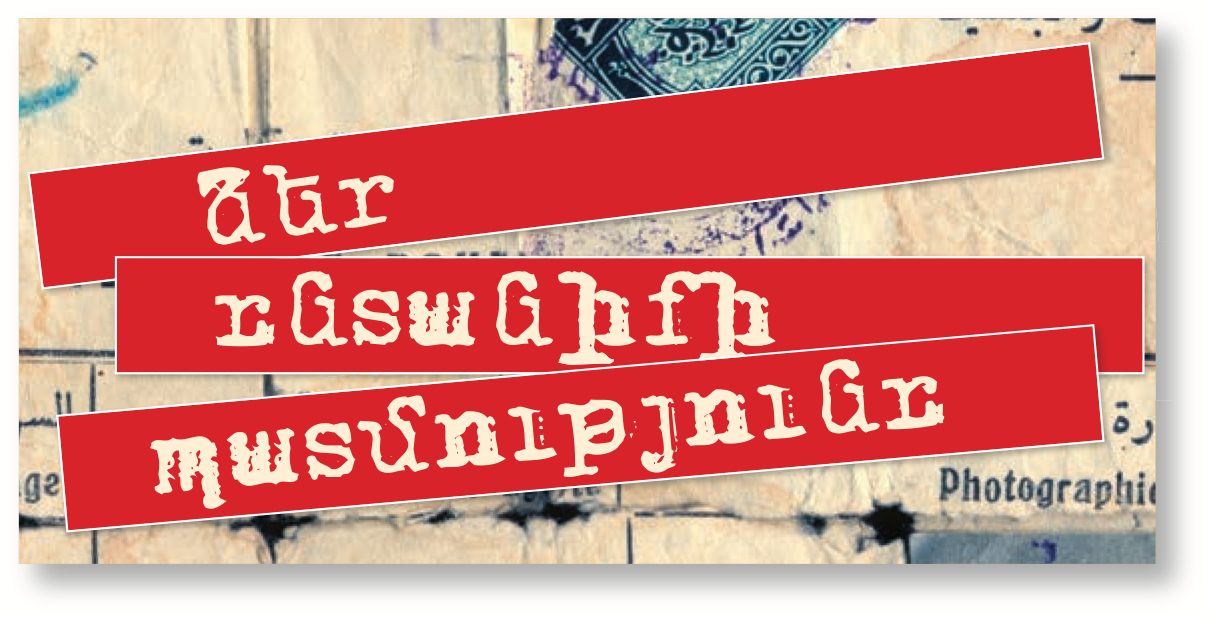 Writer and playwright (Beirut)
Writer and playwright (Beirut)
Ara Artsruni
At first, it must be said, it started calmly. Both the Tashnag wing and the patriotic front accepted the idea of repatriation. The idea in the mind of all was very clear and, at first, there was no conflict in the community.
Every day, in the afternoon, people went to the port as if on pilgrimage. Ships had either arrived or were leaving. Those who had permission to repatriate were coming from Syria, Jordan, and even Iraq. They would gather at the port. There were also tents. Those from Beirut arrived the last day. The ships were filled and left for the homeland.
But later, positions immediately got tense and led to a number of people in the Tashnagtsutiun having reservations. Others gave a preference to patriotism. The other wing, mostly the Hnchags and Communists, started to wage a more hard-lined policy and distasteful things started to occur in that hard-lined behavior.
In other words, if a person going to Armenia was a party member, they had to leave the party. There were Tashnags who, despite all this, regarded repatriation as a very important step and always supported immigration. The main figure amongst them was Nigol Aghpalian. From the first day he stated, and continued to state – go in numbers and go quickly. This became his catchphrase that he also conveyed to the youth, and many handed in their resignations and went to the homeland.
It is true that Nigol Aghpalian died in 1947, but the mentality already existed that Tashnags supported repatriation. Hrant Devedjian, in the Joghovrtayin Dzain newspaper, launched a drive of resignations from the ARF.
Diasporan Armenians began to take sides between patriotism and love of nation. For some, love of nation dominated, because in their minds the homeland wasn’t the homeland they knew. The homeland was the Soviet regime. Sadly, terrible events took place; even murders. In this situation, Armenians continued to go to Armenia.
Repatriation was the decision of Moscow. 250,000 people had been killed in the Patriotic War. Moscow permitted immigration. And I remember that the word ‘mass’ was included in that permission – mass repatriation. Personally, I regard the repatriation as a great victory because thousands of Armenians returned to the homeland.
Let me note a small example. One day, in that port we went to every afternoon, we saw that Armenians from the mountains of Iraqi Kurdistan had come. I remember, they didn’t know how to speak Armenian and were dressed as Kurds. They comported themselves as Christian Kurds, but deep down they were Armenians. They knew they were Armenian. And they came to Beirut and repatriated. It was very moving. A few had even brought horses. These people went to Armenia and became Armenian.
It’s true. Those who left believed they would live in fabulous homes, etc. They went and those promises weren’t fulfilled. But conscious Armenians immediately accepted that reality. There were people, yes, for whom there was little bread, no butter, no this or that, but the idea of the homeland was so lofty for them that the rest was secondary and even tertiary. That’s to say, it differed from person to person.
Two of my uncles were to go to Armenia from Bucharest and we, leaving from here, were to meet them. Unfortunately, they refused us because my father had been a Tashnag activist. But he had since died. The two uncles left and settled in Kirovakan, present-day Vanadzor, and we couldn’t join them. One of my uncles was very wise and accepted the reality and worked as a French and English teacher there. The other one was a bit rebellious and was deported to Siberia for eight or nine years. This is our story.
Now, however, all my family is in Armenia – my children, grandchildren, daughters-in-law. I am here with my wife. We will still return to the homeland. Today, there are people who ask, if I go to the homeland will I make money? This isn’t patriotism, this is arithmetic, bookkeeping.
This issue exists today as well. Since the 1990s there should have been a transfer not only of human resources but of economic resources to the homeland. This hasn’t yet happened because that mentality hasn’t taken root in the diaspora to go, and Armenia isn’t ready to accept those people. The groundwork isn’t ready in Armenia for a diaspora Armenian to be encouraged to transfer his capital there.
Today, these people have gone and live in Armenian populated towns in America. They still gather and sing political party and national songs. They have a cultural life but don’t have a future.



















